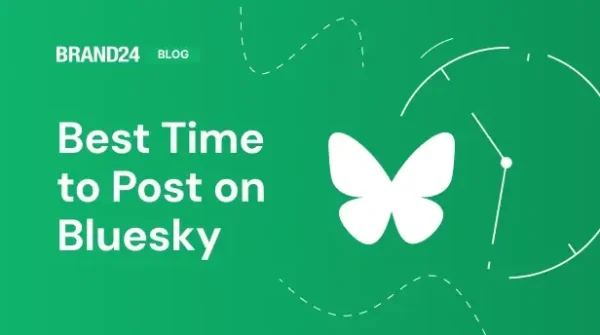6 Clever Ways to Use Facebook Groups for Growing Your Business
How many Facebook Groups do you belong to? 1,2, 2000?
Today, more than 500 million people use Facebook Groups monthly, with thousands of groups being created every day. Did you know that a single Facebook user can join up to 6000 groups? However, while managing a Facebook Page has become as essential as air for most businesses, not many brands understand and use the wealth of marketing opportunities provided by another powerful Facebook tool…groups.
Are you struggling to generate engagement and reach due to recent Facebook algorithm changes? Seeking to foster a stronger sense of community around your brand? Or looking for a way to increase customer satisfaction and sales with word-of-mouth recommendations? You are in the right place and the right time to learn how to get there.
Throughout this article, we are going to show you 6 Clever Tips & Tricks of How to Use Facebook Groups to Grow Your Business. We will start off by, however, with a quick word on the difference between a Facebook Page and a Facebook Group.
Facebook Group vs. Facebook Page
Groups are communities. They can nicely complement your Facebook Page, however, they will never substitute it. A Facebook Page is like presenting your business card to the customers while a Facebook Group is more like having a coffee with them. Groups work like discussion forums, they allow members to actively generate group content – ask questions, post about events, follow conversations, share photo, links and much more. A group membership can satisfy some users’ social image needs (for example if you represent a given industry you are expected to be seen in certain groups), they provide a sense of exclusivity and intimacy, hence, the relation you build with your audience through a group is much more personal and potentially long-lasting.
How To Use Facebook Groups to Grow Your Business
You can either use the existing groups for networking or create your own Facebook Groups and nurture customer relationship at your own account. Here are the 5 Ways to Grow Your Business with Facebook Groups You Can Create Yourself.
1. Establish Authority
Rule Nr 1: Facebook Group is not to promote your content, but to build a community and add value to your customers and prospects. People don’t join groups to be sold to, but to participate in interesting and relevant (for them!) discussions. Create a group to discuss anything related to your industry or niche, invite influencers, share expertise, solve problems, add value and people will pay back with lots of love and…engagement. Change a perspective here, see the group offer through your target customer’s eyes. Don’t promote your business or brand name but the value and benefits that are available exclusively to the group members.
Here an example of a group that connects like-minded individuals and business owners interested in the latest news and insights in Technology:

2. Test Content
Rule No 2: When in doubt, test it. While the primary purpose of your group is to generate discussion among your target market, you can use its potential to test new content ideas before they reach a wider playing field. If your new concept gets a little feedback and brings low interaction you are still on a winning side as your Page reach ends up unscratched. Additionally, you can find new ideas for your blog content and social media posts from other members’ conversations and comments. Keep an eye on what sort of content generates the most interactions in the group, and use this insight to your Page.

3. Get Real Customer Insight
How can you successfully create a product or service that satisfies your customer’s needs without knowing what their needs really are? Ask, don’t guess. Your competitors don’t. Facebook Groups provide a direct line of communication with a specific set of people and if your “set” includes mostly your customers, then you are sorted. Here an excellent example of the TEDx organisers asking for feedback and getting a real customer insight with their question posted in the Group:

4. Provide A Superior Customer Service
80% of U.S. consumers would pay more for a product or service to ensure a superior customer experience. Now, THIS is how important a good customer service is. There are plenty of ways to deliver outstanding customer service on Facebook but creating a dedicated group for customer inquiries is definitely the one to consider. Why? First, because chances are your competitors still haven’t done it and, secondly, it can help you to provide incredibly responsive customer care.

5. Build Community Around An Event
If you promote or organize lots of events, creating a thriving community around them might be a way to go. Participants can then ask questions and get assistance before the happening and share their photos and comments after the “show”. Here an example of the Facebook Group that builds the community around TechSaturdays, a monthly startup event held on every first Saturday of each month and designed to bring together Tech industry entrepreneurs and experts who share their know-how with the audience.

6. Appreciate Your Customers
Get closer to your customers and brand ambassadors by creating a dedicated group for them. Make them feel special and appreciated, let them cherish the spirit of community and togetherness.
Here an example of a clothing brand, that created a Facebook Group exclusively

Last but not Least
How to measure if your Facebook Group marketing efforts pay off? Expect direct effects such as sales increase or a higher customer rotation rate you can check the level of buzz created on the web around your brand with a media monitoring tool. Are people more eager to spread the word about your product or service? Are they positive or negative about it? Any action taken without controlling its effect is like no action was taken.
Related articles



![4 Most Important Boeing Competitors in 2025 [Detailed Comparison]](https://brand24.com/blog/app/uploads/2025/04/boeing_competitors_digital_marketing_blog_cover_615x345-600x335.webp)

